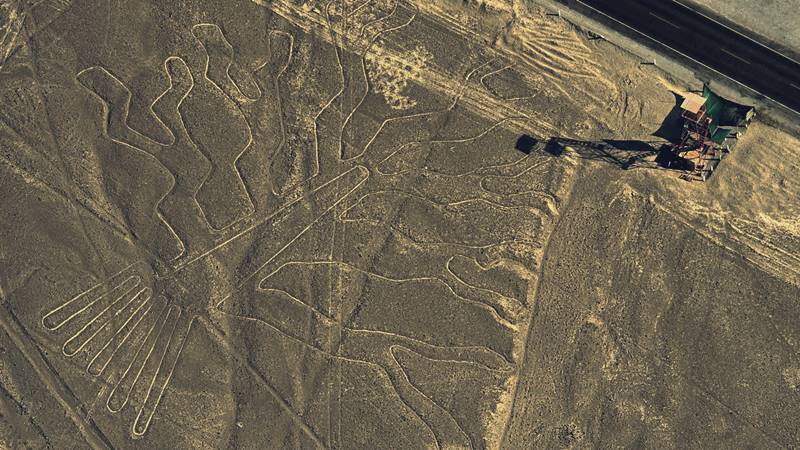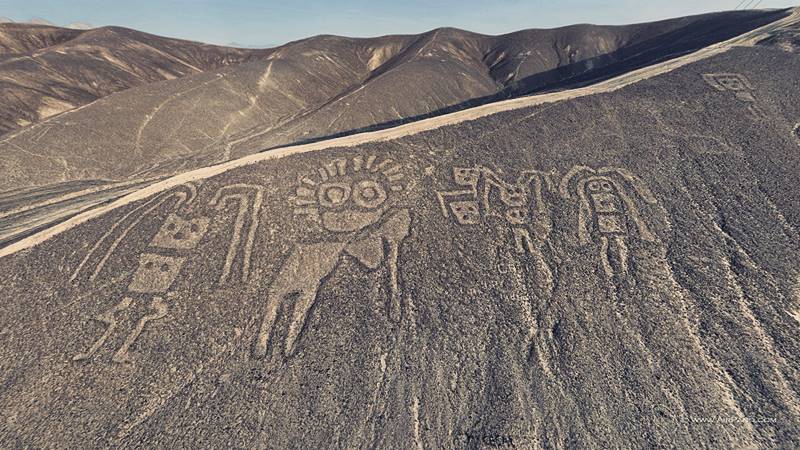Discovering the Mysteries of the Nazca Lines

In Peru, a land of extraordinary diversity and rich cultural heritage, the Nazca Lines stand as an enigmatic and lesser-known wonder, captivating the imagination of those who venture to this remarkable country. From its majestic Andean peaks to the lush Amazon rainforests, Peru offers a wealth of iconic attractions like Machu Picchu and the Amazon River, but the Nazca Lines persist as a mystery that continues to baffle scientists and intrigue travelers.
The Nazca Lines, etched into the arid Nazca Desert, are perhaps one of the most enigmatic and uncommon phenomena in Peru. These geoglyphs, gigantic drawings that stretch across the desert floor, have captured the curiosity of archaeologists, historians, and adventurers for decades. While they are well-known in some circles, their true significance remains a source of mystery.
The Enigmatic Origins
The Nazca Lines were first discovered by archaeologists in the 1920s, but their true scale and intricacy were not fully understood until aerial surveys were conducted in the 1930s. This unique perspective revealed hundreds of massive designs, ranging from simple geometric shapes to intricate representations of animals, plants, and humanoid figures.
Scholars estimate that the Nazca Lines were created by the Nazca people, a pre-Inca civilization that thrived in the region from around 200 BCE to 600 CE. What makes these geoglyphs truly astonishing is the precision and scale at which they were constructed. Some of the lines stretch for over 30 miles, while the largest figures measure up to 1,200 feet in length. These enormous drawings were etched into the desert surface by removing reddish-brown iron oxide-coated pebbles, revealing the lighter-colored earth beneath.

The Mysterious Purpose
The purpose behind the creation of the Nazca Lines remains one of the most debated and unusual aspects of these ancient wonders. Numerous theories have been proposed over the years, but none have been definitively proven.
One prevailing theory suggests that the Nazca Lines had astronomical significance. Some of the lines appear to align with the positions of celestial bodies, leading some experts to speculate that they served as an astronomical calendar or a way to mark celestial events like solstices and equinoxes. However, this theory has been met with skepticism because many of the lines do not align with significant celestial events.
Another hypothesis suggests that the Nazca Lines had a religious or ceremonial purpose. It is thought that the Nazca people used these massive drawings as offerings to their gods, possibly as part of complex rituals or to ensure bountiful agricultural harvests. While this theory is intriguing, there is still limited concrete evidence to support it.
One of the most unusual and controversial theories proposes that the Nazca Lines were constructed as giant runways for ancient spacecraft or as messages to extraterrestrial beings. This hypothesis, often associated with the concept of ancient astronauts, has been widely discredited by mainstream archaeologists and scientists.

Preservation and UNESCO Recognition
The Nazca Lines face numerous threats today, including environmental factors, urban development, and tourism. The arid desert climate has helped preserve these geoglyphs for centuries, but changing weather patterns and increased human activity now pose significant risks. The lines can be damaged by foot traffic, which is why strict regulations are in place to protect them. Helicopter and small-plane flights have also been restricted to specific flight paths to minimize disturbances.
In recognition of their historical and cultural significance, the Nazca Lines were designated as a UNESCO World Heritage Site in 1994. This recognition has helped raise awareness about the importance of preserving these ancient drawings for future generations.

Continuing Mysteries and Ongoing Research
Despite decades of research, the Nazca Lines continue to be shrouded in mystery. New discoveries and technologies, such as satellite imagery and drone photography, have provided fresh insights into these ancient geoglyphs. Recent excavations near the lines have revealed clues about the Nazca people’s daily life and culture, shedding light on their possible motivations for creating these enigmatic drawings.
Researchers are also exploring the use of cutting-edge techniques like ground-penetrating radar to uncover even more hidden geoglyphs beneath the desert floor. Some believe that these undiscovered lines could hold the key to unraveling the true purpose of the Nazca Lines.
Preservation efforts and ongoing research are essential to protect the Nazca Lines and unlock the secrets they hold. As we continue to explore the mysteries of this remarkable site, we are reminded of the enduring human capacity for creativity, ingenuity, and wonder in the face of the unknown. The Nazca Lines stand as a testament to the enduring spirit of exploration and the profound mysteries that still await discovery in the world around us.
if this region captures your interest, don’t miss these incredible hostels in the country.



